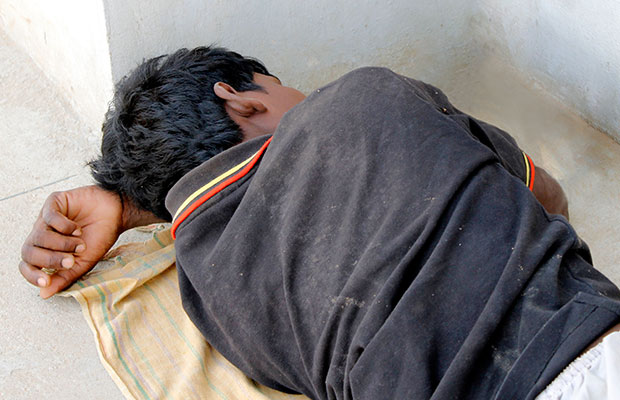
A New Beginning for Homeless Youth
For millions of homeless and abandoned youth around the world, it is but one of the many insidious and heartbreaking consequences of living on the streets: substance abuse. Facing the almost unimaginable daily horrors of physical and emotional violence, rampant exploitation, forced labor, poor health and little hope for the future, sniffing glue — or worse — is often the only way these boys and girls can ward off their pain, escape their hunger and erase their despair.
In Brazil, they’re known as Clefaros, named after clefa (the pungent adhesive used by shoemakers) that they inhale. In Honduras, they are called Resistoleros after Resistol — the country’s major glue brand. Yet no matter where they are, or whether or not they have a collective name, countless marginalized youth — in Nairobi and Kathmandu, in Myanmar and Somalia, and across the developing world — struggle every day with addictions that further dampen their chances of escaping life on the streets. And there are few, if any, services available to help them quit.
Having witnessed the growing epidemic of substance abuse among youth in their own communities, Salesian missionaries and staff are committed to integrating specialized addiction services into their programs for homeless and at-risk children — particularly those participating in formal and informal education.
“We know from experience that education provides the best opportunity for marginalized youth to break the chains of poverty,” says Father Mark Hyde, director of Salesian Missions. “We also know that substance abuse negatively affects a child’s ability to learn, as well as his or her behavior outside of school. We therefore have a crucial role to play in helping to identify substance abuse early, while ensuring that children have access to proper care. We want them to have every chance for success in building a better future for themselves.”
In India, these services are based on a comprehensive approach that includes raising awareness and a better understanding of addiction among educators, as well as providing individualized treatment options for the girls and boys themselves.
Recently in Mumbai, for example, the Don Bosco Research Center held the first of what will become a series of training programs for teachers to increase their proficiency in identifying and preventing substance abuse. More than 50 educators attended specialized workshops facilitated by medical personnel, a clinical psychologist and a substance abuse counselor; participants learned about the meaning of addiction, its warning signs and long-term effects. They also learned about preventive measures they can take at the school level, life skills to teach their students as well as monitoring and follow-up care.
Additionally this past May, Salesian missionaries at Don Bosco Jananam in Tamil Nadu launched an innovative pilot project for boys grappling with substance abuse. Twenty boys — all of whom were addicted to inhalants and some of whom struggled with multiple dependencies including alcohol and tobacco — were invited to attend a 10-day camp designed to help motivate them to make positive life choices free from substance abuse. Six boys agreed to participate, and each received specialized, hospital-based care supervised by a psychiatrist and de-addiction counselor. Two Salesian priests offered spiritual guidance throughout the process.
“The boys responded well to their treatment,” says Father John Dharman, director of Don Bosco Jananam. “We plan follow-up programs to ensure their continued success, and also intend to grow the camp program in order to reach many more youth.”
Our mission supports homeless youth around the globe with the services and opportunities they need to build a better future. What’s your mission?

